A nation torn apart by vile ignorance and anti-Semitic hate
Not since the Vietnam war, more than half a century ago, has a foreign conflict so divided the nation.
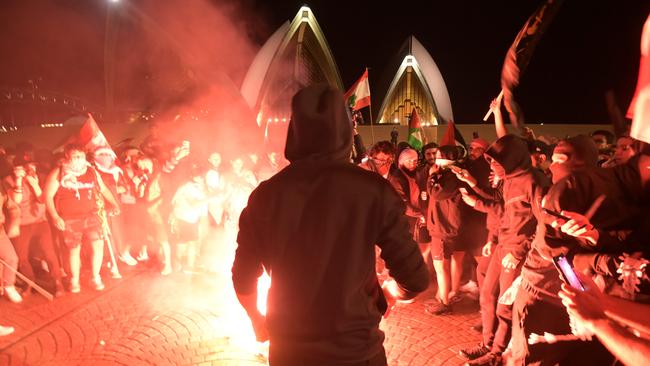
For the 100,000 Jews who call this country home, there are now two Australias.
The first they remember with pride and glistening eyes: the Australia that gave them, their parents and grandparents a second chance as a refuge from hate abroad. Their cry of thanks was to return the favour in spades, helping to build their adopted country brick by brick through hard work, through business empires, through arts and culture, producing along the way two governors-general and the country’s most famous soldier, among many.
That Australia, in which Jews were overwhelmingly welcomed, appreciated and embraced, died a year ago, on October 7, 2023. That was the day when the murderous act of a terrorist group against Israeli Jews on the other side of the world also exposed a dark, virulent and previously underestimated underbelly of anti-Semitism here in Australia.
OCTOBER 7: A YEAR ON
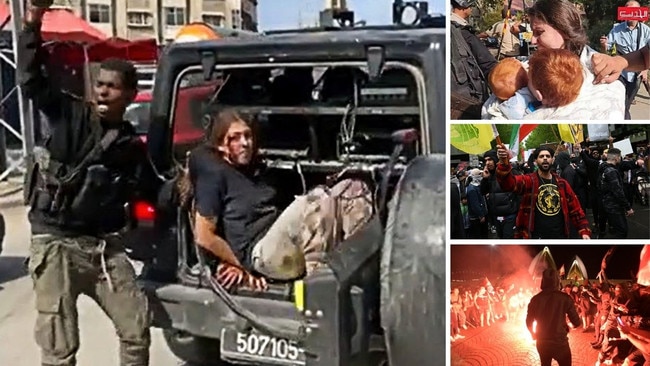
Australia is not the same country — but too many are in denial
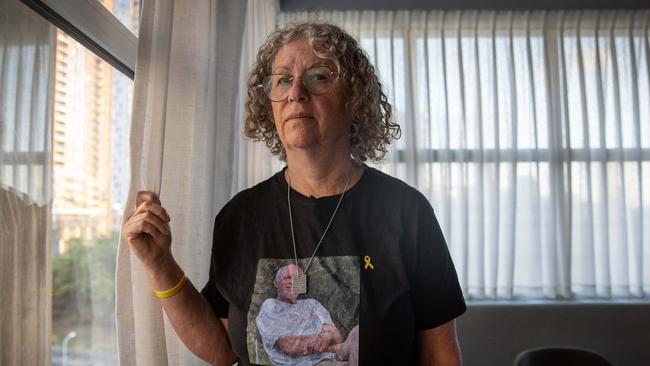
After ‘51 days of hell’, former hostage haunted by fear for husband
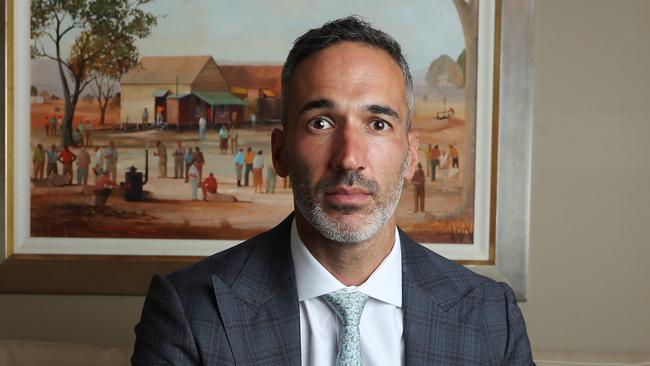
Attacks on Jews at record levels
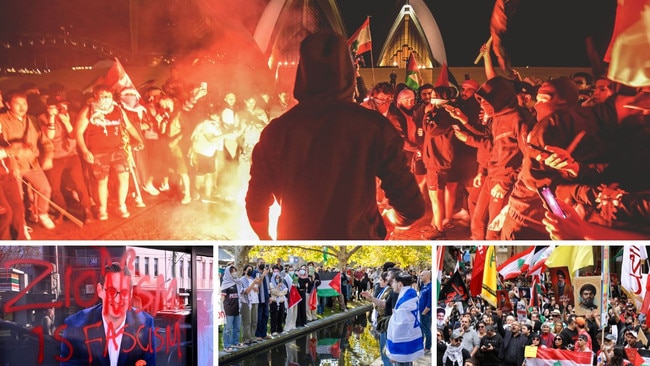
No longer ‘one and free’: Nation torn apart by vile ignorance
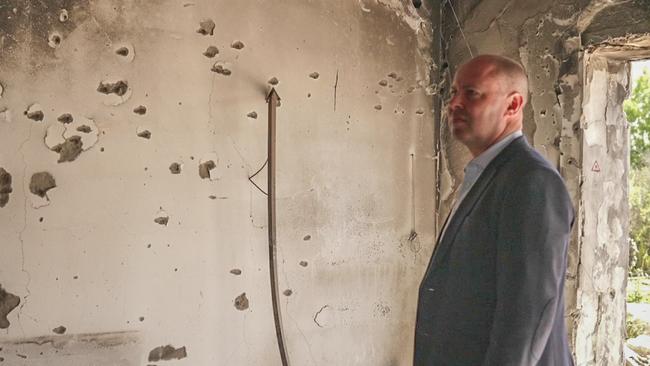
Australia has been weak when we needed to be strong
Labor’s doublespeak and equivocation have made the nation less safe as a result.
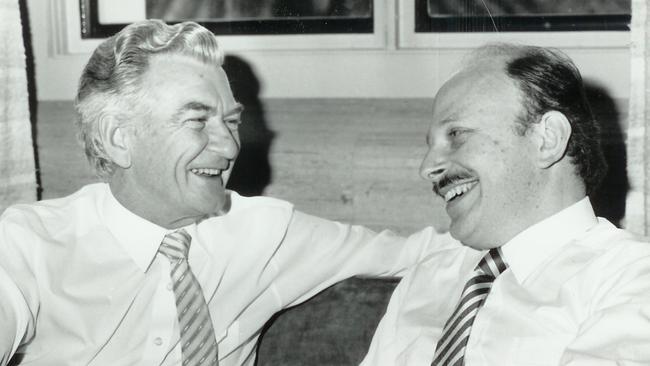
‘Genocide’ the modern-day blood libel to demonise Jews
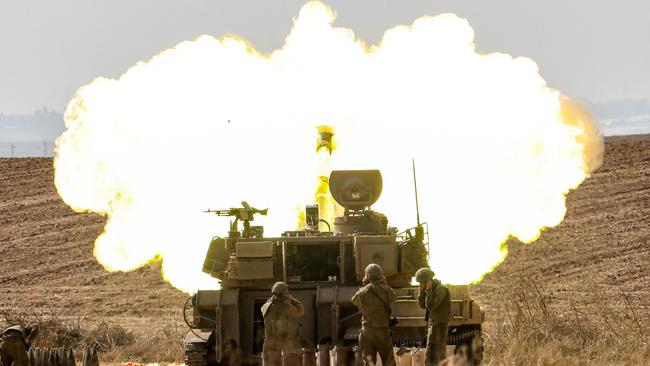
Two enemies, two paths – and one deadly objective
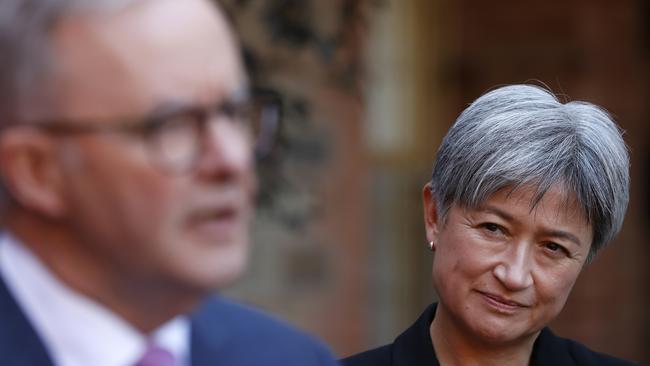
The tweet that captures the cowardice of Labor
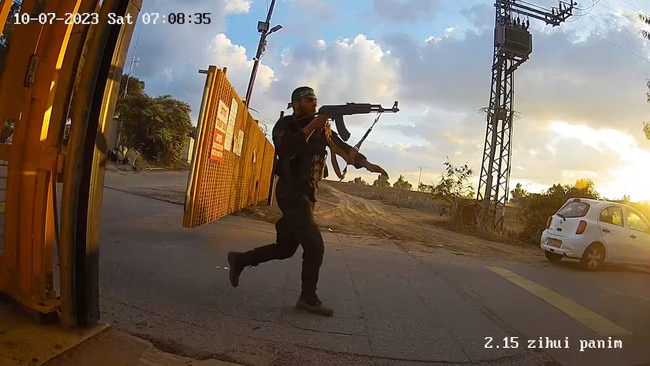
‘They’re here’: a family’s tale of escape as Hamas terrorists attacked
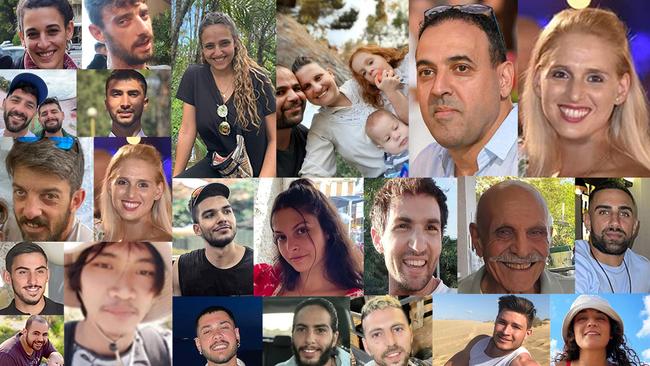
The nagging thought haunting the families of the Hamas hostages
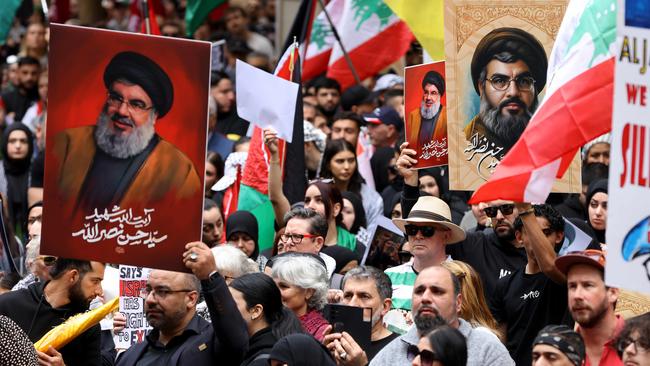
Look around, and you’ll see Hamas’ goals of October 7 fulfilled
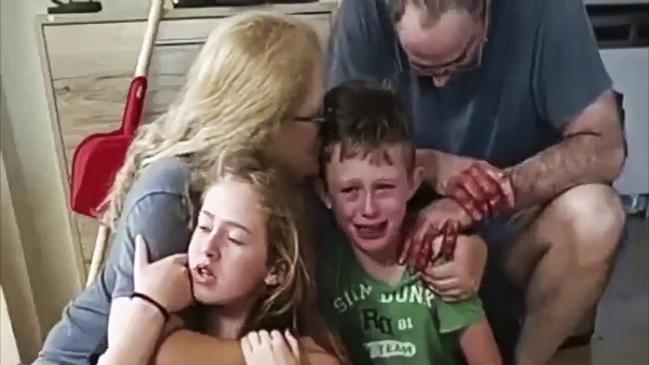
The real-life horror movie our politicians refuse to see
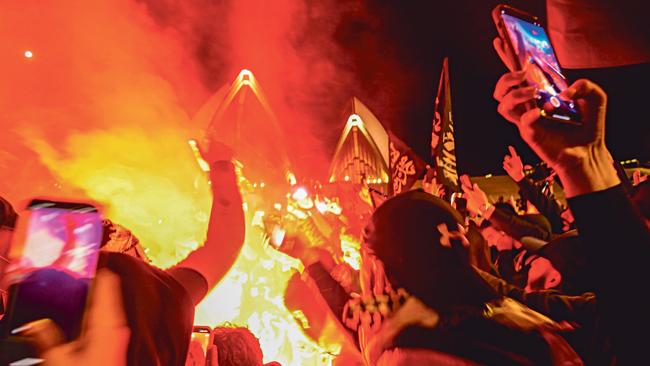
We need to talk about the crisis in Western civilisation
The October 7 pogrom unleashed a wave of sympathy across the West – for the perpetrators.
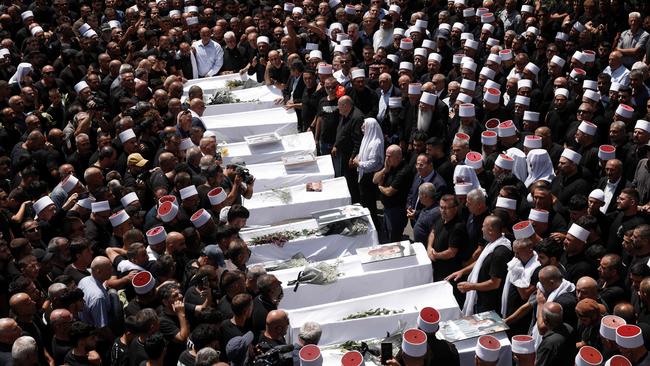
To the political left, some kids matter more than others
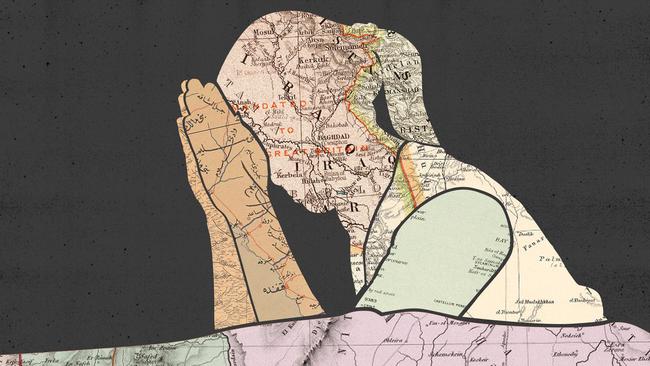
Notes from a long war: Israel one year on from the October 7 massacre
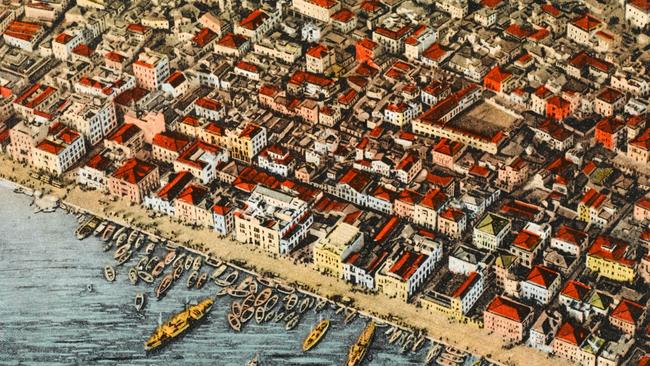
In exile: how Jews became a perpetually persecuted people
The fallout from the massacre of more than 1200 Israelis on October 7 and Israel’s subsequent war on Hamas in Gaza which has left more than 40,000 dead – and now Israel’s war on Hezbollah in Lebanon and its confrontation with Iran – has not just changed Australia, it has convulsed it.
Not since the Vietnam war, more than half a century ago, has a foreign conflict so divided the nation.
The ferocious political battle between those who believe Israel has a right to defend itself from the Hamas terrorists who want to destroy it, and those who believe that Israel’s heavy-handed response in Gaza is worse than the original crime committed by Hamas, has befuddled federal and state governments, corporations, universities, schools and institutions across the country. It has divided families, fractured politics and triggered violence in the streets.
The greatest tragedy for Australia is not the rights or wrongs of this political debate, but rather the fact that so many critics of Israel veered so quickly, effortlessly and at times eagerly from political criticism of Benjamin Netanyahu’s government and into naked anti-Semitism.
Rise of anti-Semitism
The figures do not lie, indeed, they are staggering and shameful. The nation’s peak Jewish body, the Executive Council of Australian Jewry, recorded at least 1800 anti-Semitic incidents across Australia between October 1 last year and August 30 this year, a stunning 324 per cent increase on the same period a year earlier. These are just those incidents that have been reported; the true figure is far higher.
Federal and state governments, universities and institutions, spooked by the noisiness, visibility and perceived political clout of the pro-Palestinian protest movement, failed in their duty to call out the deeply racist instincts of this movement’s activist rump.
They chose expediency over principle by failing to condemn – loudly and without qualification – this surge in anti-Semitism, ensuring that it flourished even further.
Governments, universities and institutions failed to see over this past year that two very distinct types of pro-Palestinian protesters were emerging in Australia. One was a peaceful and benign group of mum-and-dad protesters who would march on a Sunday against what they saw as an excessive civilian death toll from the war in Gaza. No one, including Jewish Australians, had a problem with this group, even if some of them disagreed with their views.
But these peaceful protesters were eclipsed and undermined by the cabal of activists who now run this so-called peace movement. This hardline group have revealed themselves to be political extremists whose core belief goes far beyond a hatred of Israel and into naked anti-Semitism. Astonishingly, they have been aided and abetted in their racist campaign by a mainstream Australian political party, the Greens.
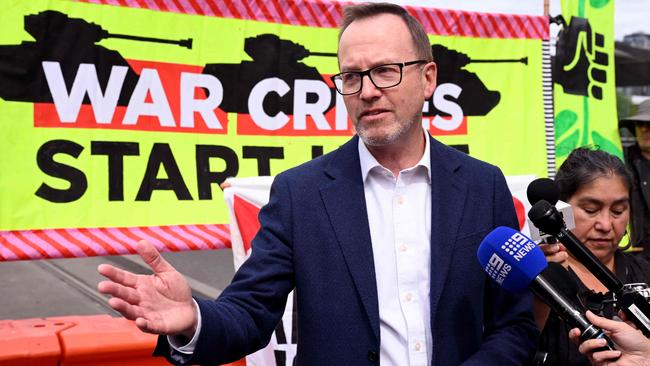
For this activist group, whose rallying cry is “From the River to the Sea”, calling for the eradication of Israel, it was always the Jews, rather than Hamas, who were to blame. They cast a deliberately blind eye to the slaughter of more than 1200 innocent Israeli men, women and children murdered and mutilated in the fields of a music festival, in their kibbutz homes, and on the streets. Israel deserved it, they shrugged.
Israel’s subsequent war on Hamas, and the terrible civilian death toll, were the evil work of a colonial oppressor, they said – as if Israel, the only democracy among a sea of Islamic dictatorships bent on its destruction, had started this fight.
They decried loudly the deaths of Palestinian women and children in Gaza yet were silent about the murder and rape of Israeli women and children by Hamas.
Community targeted
For this group of sometimes violent activists, Australia’s Jewish community was fair game. It didn’t matter that Australian Jews lived on the other side of the world and had nothing to do with events in Israel or Gaza. It didn’t matter that many Australian Jews did not even agree with the policies of the Netanyahu government and that many also supported a two-state solution that would enable Jews and Palestinians to live in peace in the Middle East.
In the eyes of this activist pro-Palestinian movement, all Australian Jews were labelled “Zionists”, as if their support for the very existence of Israel – the literal meaning of the term Zionist – had become a crime against humanity.
The tragedy for the Jewish community was that this ugly messaging, with its racist overtones, got traction among those in Australia who should have known better. All of a sudden, Australian Jews were being targeted, not only by the mostly Muslim crowd who yelled anti-Semitic slurs at the Opera House on October 9, but by a broad swath of liberal Australia, from university and high school students and teachers to local councils, to artists and musicians, to the Greens and the Labor left.
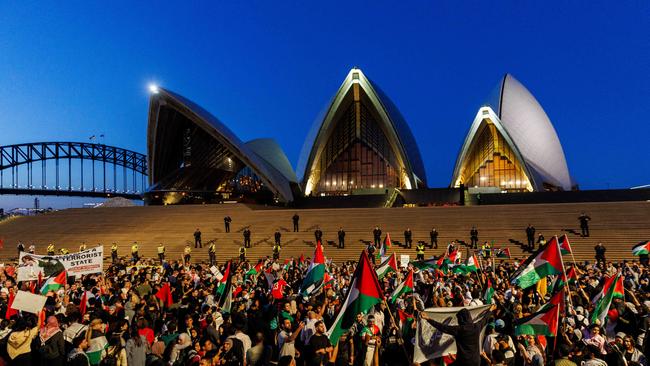
These groups, which were silent when Muslim civilians were dying in conflicts in Syria, Yemen, Chechnya and Afghanistan, were suddenly outraged by deaths in Gaza. The victims of their selective outrage and new-found righteousness were Australian Jews.
“Our pain was exacerbated by the reaction of some of our fellow Australians – the convoys of cars, the preachers on the streets, the lowly thugs on the steps of the Opera House looking for us and warning us that the ‘armies of Muhammad were coming’,” says ECAJ co-chief executive Alex Ryvchin.
“I saw perverse relish in the online influencers and celebrities who doxxed hundreds of Jewish Australians, putting their livelihoods and their lives in danger.
“We have had to fight as a community, hour by hour, against radical clerics, flaccid vice-chancellors, an unpredictable government torn between what is right and what is expedient, and issues of complexity and scope that go to the heart of what it means to be an Australian and a Jew.”
Lightning strikes
The year of living dangerously for the Jewish community unfolded so fast, and with such aggression, that it was completely unprepared for the torrent of abuse that headed its way.
Just 24 hours after the Hamas massacre of October 7, as the bodies of more than 1200 Jews in Israel still lay where they had been murdered in cold blood, one Islamic leader, Sheik Ibrahim Dadoun, told a cheering crowd in Sydney’s Lakemba that “I’m smiling and I’m happy. I’m elated … It’s a day of courage. It’s a day of pride. It’s a day of victory. This is the day we’ve been waiting for!”
Less than 48 hours later, on October 9, the now infamous Opera House protest features hundreds of pro-Palestinians chanting vulgar anti-Semitic threats as they celebrated Hamas’s murderous slaughter of innocent Israeli civilians. This protest took place before Israel had time to respond in any meaningful way to the massacre. The protest was an attack on Jews simply because they were Jews.
A month later, Melbourne’s Jewish community got a glimpse into the dark heart of this protest movement when pro-Palestinian activists chose to stage a highly provocative rally, complete with anti-Semitic chants, outside a synagogue in Caulfield, the heart of Jewish Melbourne. It ended with pro-Palestinians breaking police lines and attacking Jewish onlookers.
Prejudices emerge
But even darker events were fast unfolding online as an army of anti-Semitic trolls targeted Australian Jews and Jewish organisations, perpetrating age-old anti-Semitic tropes including that Jews controlled governments, banks, media and other institutions.
The image of an Islamic State terrorist with a knife in his hand about to behead a hostage in Syria was sent to ECAJ with the words “We are coming for you soon, from western Sydney”. Pro-Palestinian protesters gleefully leaked the personal details of some 600 Jewish creatives from a private WhatsApp group. Many were subsequently abused online, and one family was forced into hiding.
In Sydney, a company that rented jumping castles refused to rent games to a Jewish school, telling them “I don’t want your blood money”. In Melbourne, a Jewish customer in Officeworks was refused service by a pro-Palestinian salesperson. Jewish couple Josh and Maggie Moshe were forced to close their gift shop in Melbourne’s inner north after months of sustained abuse, with the words “Glory to Hamas” sprayed on their shopfront. A Melbourne hotel where heartbroken relatives of victims killed or kidnapped on October 7 were staying was overrun with pro-Palestinian supporters carrying bloodied baby dolls and baying for the end of Israel. The office of Jewish Labor MP Josh Burns in Melbourne was vandalised, with windows smashed and the words “Zionism is Fascism” painted over a poster of Burns with red horns drawn on his head.
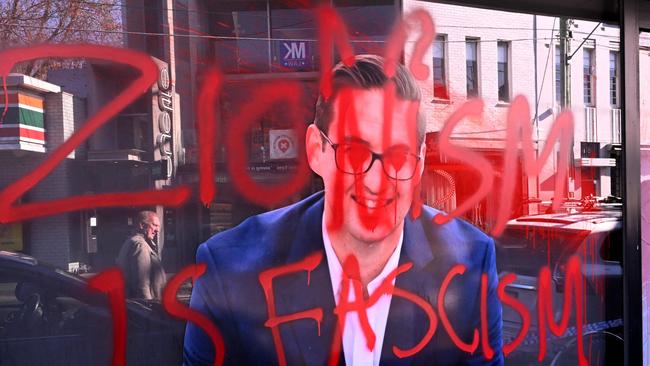
At times, the targets of this pro-Palestinians and anti-Semitic vandalism had nothing to directly do with the conflict in the Middle East. In Canberra, a man was charged on multiple counts after spray painting slogans onto the Australian War Memorial in June, while elsewhere around the country war memorials were similarly defaced.
Bias on stage
In the arts, ARIA-winning Jewish singer-songwriter Deborah Conway was targeted online for publicly supporting Israel’s right to exist and defend itself from terror. For Conway, the fallout from this online campaign had very real-life consequences. Nervous music promoters cancelled her concerts while invitations to speak and perform at literary festivals were withdrawn on spurious grounds. As a defiant Conway told the Sydney Institute last month: “I keep being told I’m brave, that we are brave, but I’m not sure we had a choice. I never felt I could do anything other than stand my ground against the unreason. I always knew that if I was going to pick a hill to die on it would be defending Israel’s right to exist and calling out blatant unexamined anti-Semitism from all the good, the kind, the righteous, the educated, the clever, the concerned, even amongst people I could never have imagined would fall for it.”
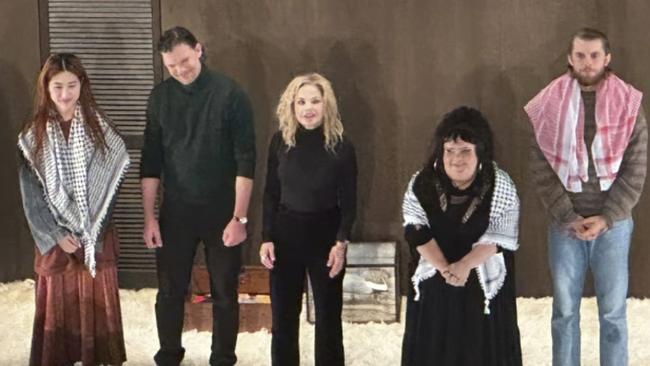
The Sydney Theatre Company suffered a backlash from supporters and donors after it failed to quickly condemn three performers who wore Palestinian keffiyeh scarves at a curtain call. And the manager director of the Melbourne Symphony Orchestra was terminated by the MSO board, which feared the wrath of the pro-Palestinian movement after she chose to ban a pianist who used the stage to accuse Israel of war crimes in Gaza.
Stain on education
Schools and universities were not immune. In fact, they became centres of anti-Semitic protest. Inner Melbourne high schools supported their students skipping class to protest against Israel, with hundreds of pupils outside Flinders St station chanting for Israel’s destruction and yelling Allahu Akbar (God is Great), the final words spoken by the September 11 terrorist hijackers before they flew their jets into New York’s World Trade Centre in 2001, before these students were born.
On university campuses, Jewish students quickly found themselves ostracised as pariahs, not only by fellow students but also by pro-Palestinian lecturers and staff. Some students were quietly expelled from shared student houses simply because they were Jewish. As the war in Gaza continued, the hostility towards them grew. At several universities and colleges around the country, pro-Palestinian encampments formed on campus. But the activists at these encampments, while advocating their right to freedom of speech and protest, too often employed hate speech directly against Jews.
Impact on a family
Moran Dvir, a 48-year-old Jewish mother, was with her daughter, a Deakin University student, visiting Deakin’s Burwood campus in May when they encountered pro-Palestinian protesters spewing anti-Semitic insults.
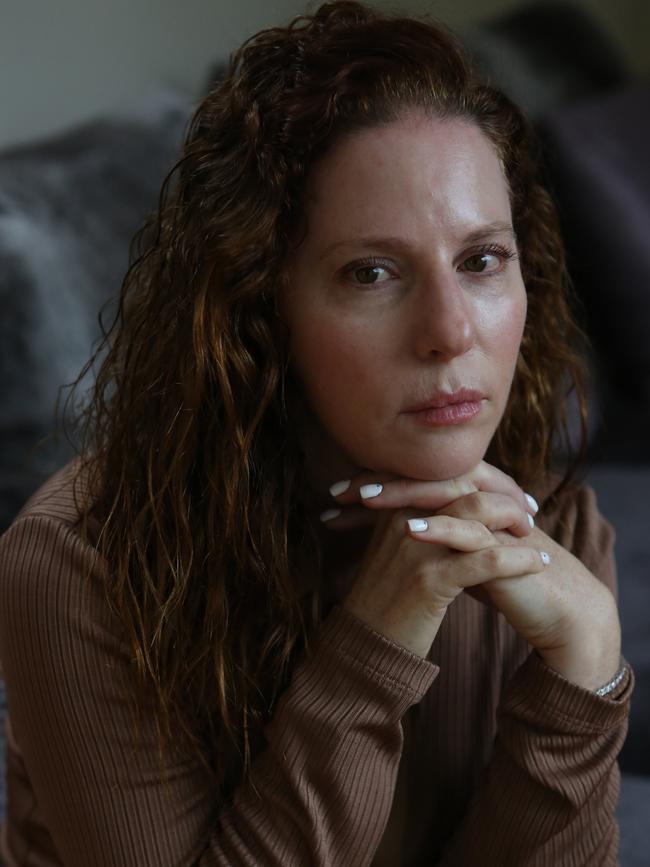
“They chanted ‘F..k off Zionists. F..k off Zionist scum’ blatantly, openly in the middle of the day on the university campus, in front of campus staff, in front of campus security,” says Dvir. “And those students are allowed to be on campus, they are allowed to return as full students,” she says referring to the fact that one of the activists who conducted the chants, Renee Nayef, had her initial suspension by the university revoked.
Dvir says she contacted the university seven times about the hate speech but got nowhere. “I am sure that if the slur was “f..k off Indigenous/gay/black etc scum” they would have penalised the student immediately and with no hesitation,” she says.
Several weeks later, as Dvir was taking her younger daughter to her school at Mt Scopus College, they were confronted with the words “Jew Die” painted on the school wall. “So my older daughter at her university has hate speech shouted at her and my youngest daughter goes to her school and sees ‘Jew Die’,” she says.
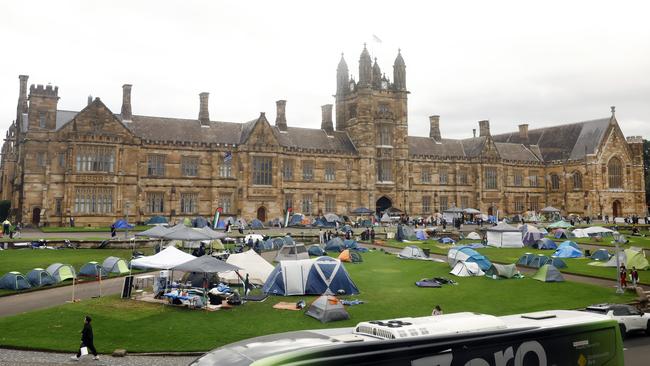
Despite many encampment protesters using hate speech on campus, university management, including at Deakin and at the University of Sydney, did nothing. Last month, the University of Sydney finally admitted it had failed its Jewish students and staff by its inaction. “If (Jewish) students have felt unsafe or unwelcome, if that is their lived experience, if that is their testimony, we have failed the … I have failed them and the university has failed them,” said vice-chancellor Mark Scott.
Wide disapproval
It is not only members of the Jewish community who have been appalled by the rise in anti-Semitism. Many non-Jewish Australians have been alarmed by the broader social divisions and tensions across the community that have been caused by the targeting of Jews.
Australia has welcomed waves of immigrants over the past century, from Greeks and Italians, to Vietnamese, Chinese, Lebanese, Syrians, Afghans and Sudanese. While these groups have assimilated well into Australia, each was at times subjected to racism. But none of these groups was subjected to the sort of organised, systematic and institutionalised racism that has been directed at the country’s Jewish community over the past year.
Political failures
As all of this has unfolded, the Albanese government has been far from forthright in its condemnation of this issue. Although the government has condemned anti-Semitism, it has also in the same breath condemned Islamophobia.
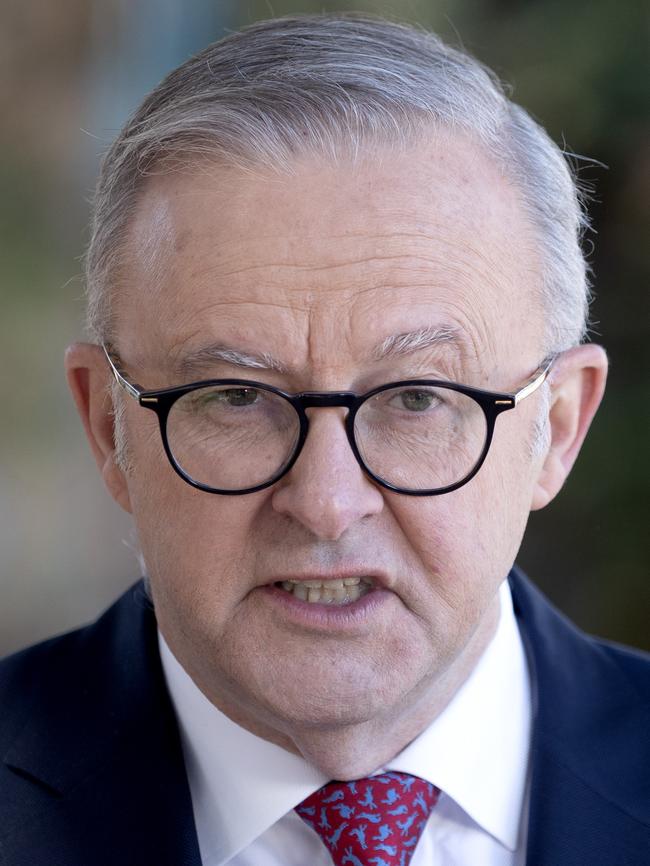
By joining the two together, it effectively belittles the record levels of documented anti-Semitism, by making the absurd and unsupported proposition that Muslim Australians are also being subjected right now to similarly record levels of persecution. This, combined with the government’s ever increasing criticism of Israel’s war on Hamas in Gaza, has led many in the Jewish community to believe the government has compromised its principles to secure the large Muslim vote in key Labor-held electorates in western Sydney.
But the most dramatic political development since the October 7 attack has been the decision by the Greens to throw their support behind the hardline elements in the pro-Palestinian movement. Greens deputy leader Mehreen Faruqi has repeatedly refused to say if Hamas, a listed terror group in this country, should be disbanded. Greens senator David Shoebridge chose to speak at last month’s violent pro-Palestinian, anti-war protests in Melbourne, where he condemned the “extreme violence” of Victoria Police rather than the violence of pro-Palestinian protesters.
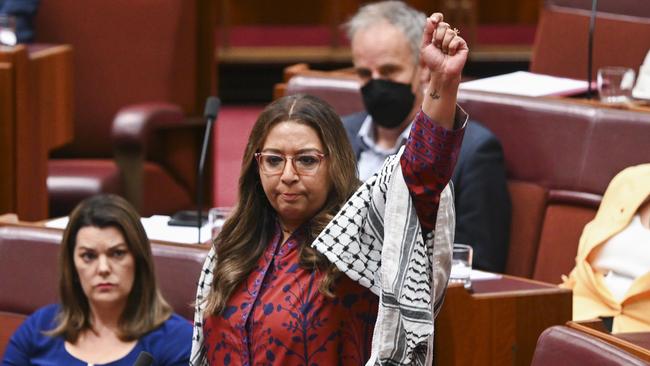
Future lives
So how have the harrowing events of the past year changed life for Australian Jews? “The Jewish community has been permanently transformed by the events of the past year,” says Ryvchin. “We have been hardened, shed some of our optimism and naivete, and now firmly understand that the battle for our rights and freedoms is a battle for the very future of this country.”
Jeremy Leibler, president of the Zionist Federation of Australia, says: “All of us, in one way or another, have been hurt and disappointed by colleagues, friends and neighbours – people with whom we have so much in common – who have been so ready to pick a side, which demonises Israel and glorifies its terrorist enemies.”
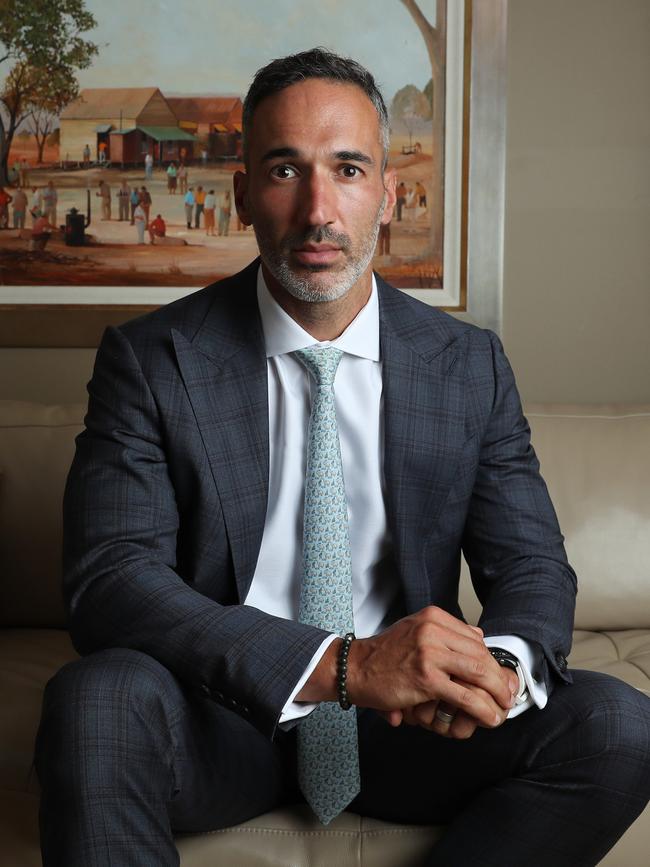
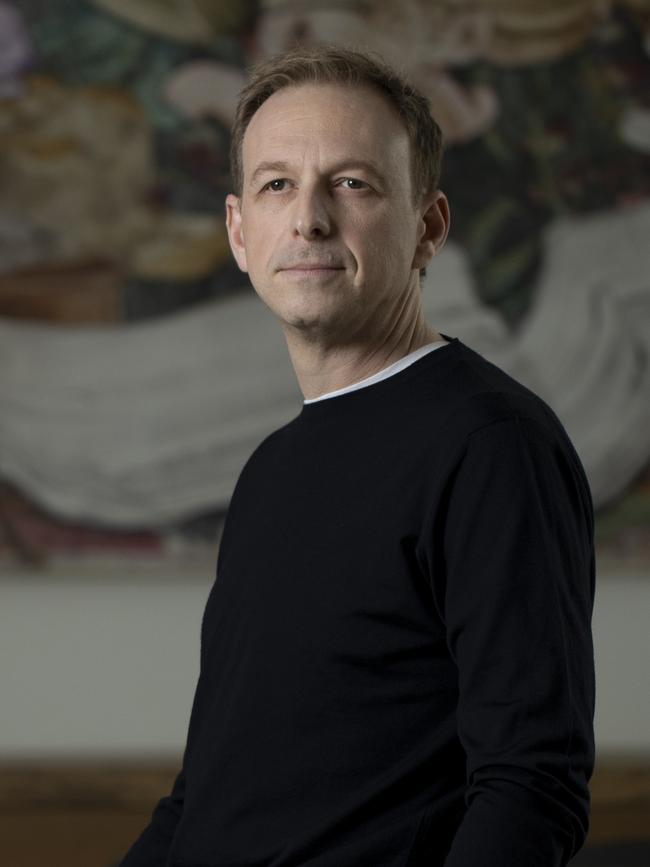
For Dvir, the most distressing aspect of the past year has been the tepid response of the government and institutions to the rise in anti-Semitism. “The biggest shock to me was not so much the acts of individuals but rather the ways that, on a macro level, anti-Semitism has been allowed to fester, or has been swept under the carpet by universities, governments, councils or the art sector,” she says. “I am shocked at the way it has just been accepted.”
She worries about Australia’s ability to tackle anti-Semitism now that it has flourished and, to some extent, been normalised. “Once it is out of the box, how do you put it back?” she asks. “Once you have tolerated people walking with signs supporting terrorists and calling all Zionists terrorists, what happens next? Where does all that hatred go? I think Australia has been changed, I no longer recognise it and I feel foreign in my own country. I’m really worried about what the future looks like.”
Speak with members of the Jewish community and they will tell you that, for their own safety, they have adjusted their life to the realities of this new Australia. It’s often just small things but they speak volumes about how the country has changed. Like the 14-year-old boy living across the road who now tucks his Star of David pendant under his T-shirt when he leaves his house. Or the neighbour who no longer wears his kippah cap on the train. Or the schoolchildren who have been told not to wear anything identifiably Jewish when they walk to and from school. Or the kids, aged 10 to 15, in the Jewish AJAX junior Aussie rules football club in Melbourne who this season have endured racist insults from their opponents week in and week out, ranging from jibes about Hitler, to having their kippahs ripped from their head, to having opposition players say “Free Palestine” to each team member when they shake hands.
“My greatest fear now is that the Jewish community will increasingly turn inward, seeking the comfort and familiarity of our own, a natural reaction in times of strain but one which would reverse decades of contribution to the greatness of this country,” says Ryvchin. “I also fear for the youth in my community, who are seeing for the first time what it means to be accused of ghastly things and to be hated because of who you are rather than what you have done.”
Leibler believes that amid the gloom, there are some silver linings. “The Jewish community has rallied and come together under duress,” he says. “We won’t be defined by this (anti-Semitism). I feel in the community a determination to double down on the positive, loyal and respectful connections we have within the broader community,” he adds. “These are the things that have made us so proud and grateful to be Australians.”


To join the conversation, please log in. Don't have an account? Register
Join the conversation, you are commenting as Logout